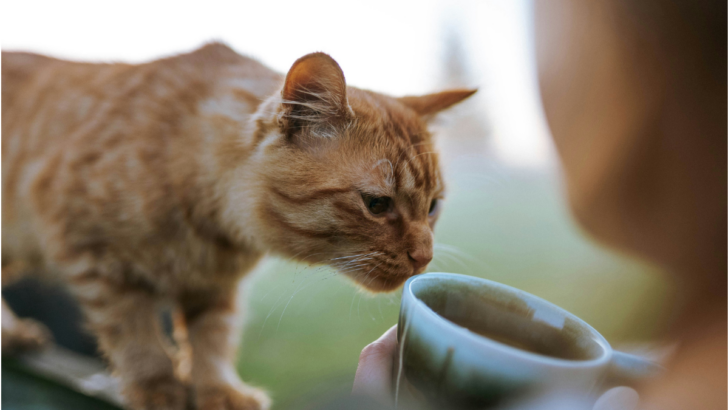Cats are curious creatures, often exploring and tasting things they shouldn’t. As a responsible cat owner, it’s essential to know which foods pose a serious risk to your feline friend’s health. Here’s a list of 10 toxic foods that you should keep away from your cat’s reach.
1. Chocolate
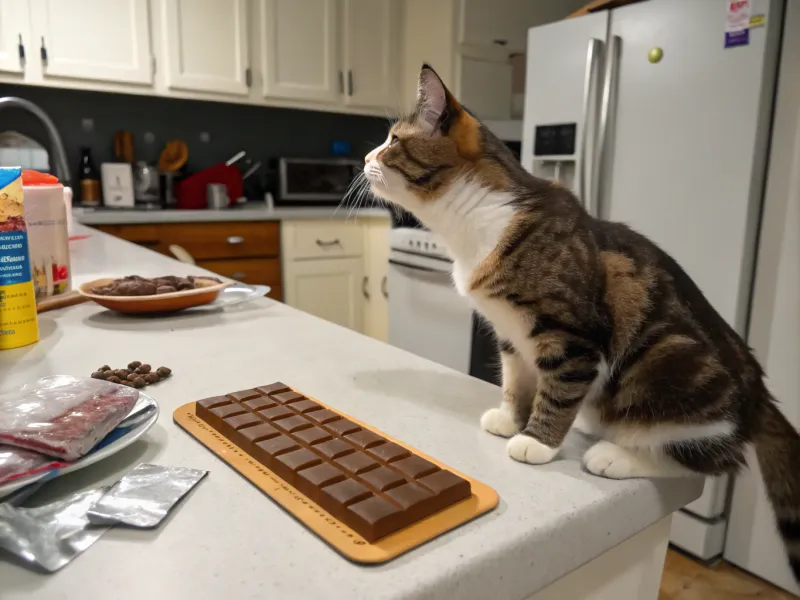
Chocolate contains theobromine, a compound highly toxic to cats. Even small amounts can cause vomiting, diarrhea, and in severe cases, seizures and death. Dark chocolate is particularly dangerous due to its higher concentration of cocoa.
The symptoms can manifest within hours of ingestion, making it crucial to contact a veterinarian immediately. Cats tend to avoid chocolate due to its bitterness, but accidental consumption is still possible.
Always store chocolate in cat-proof containers or high shelves. Educate family members and guests about the potential dangers of sharing chocolate treats with felines.
2. Onions and Garlic
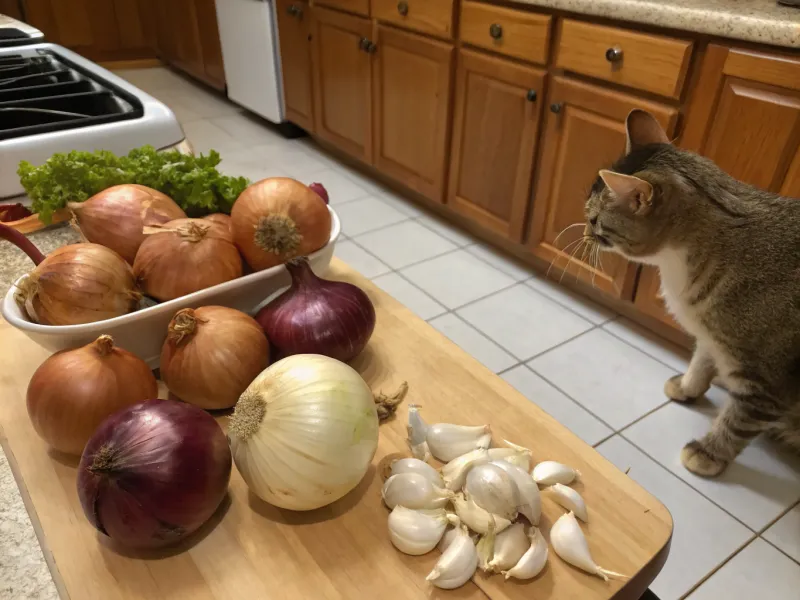
Onions and garlic, whether raw, cooked, or powdered, contain compounds that can damage a cat’s red blood cells. This can lead to anemia, lethargy, and weakness. The symptoms might not appear immediately, and they can develop over several days.
If your cat ingests onion or garlic, monitor for signs like pale gums, fatigue, or decreased appetite. Immediate veterinary care can prevent severe complications. It’s best to avoid feeding your cat any foods seasoned with these ingredients and ensure they don’t access leftovers that might contain them.
3. Grapes and Raisins
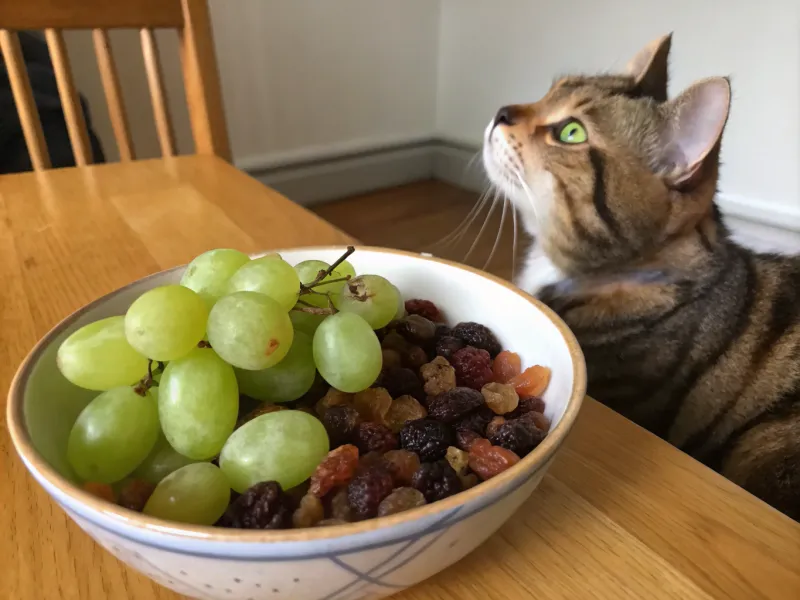
Grapes and raisins can cause acute kidney failure in cats. The exact substance causing this reaction is unknown, but even a small amount can be toxic. Symptoms such as vomiting, diarrhea, and lethargy usually appear within 12 hours.
In severe cases, cats may exhibit decreased urination, which can be life-threatening. Keeping grapes and raisins out of your cat’s diet is crucial, including foods that may contain them, like baked goods. If you suspect your cat has eaten grapes or raisins, seek veterinary assistance right away.
4. Caffeine
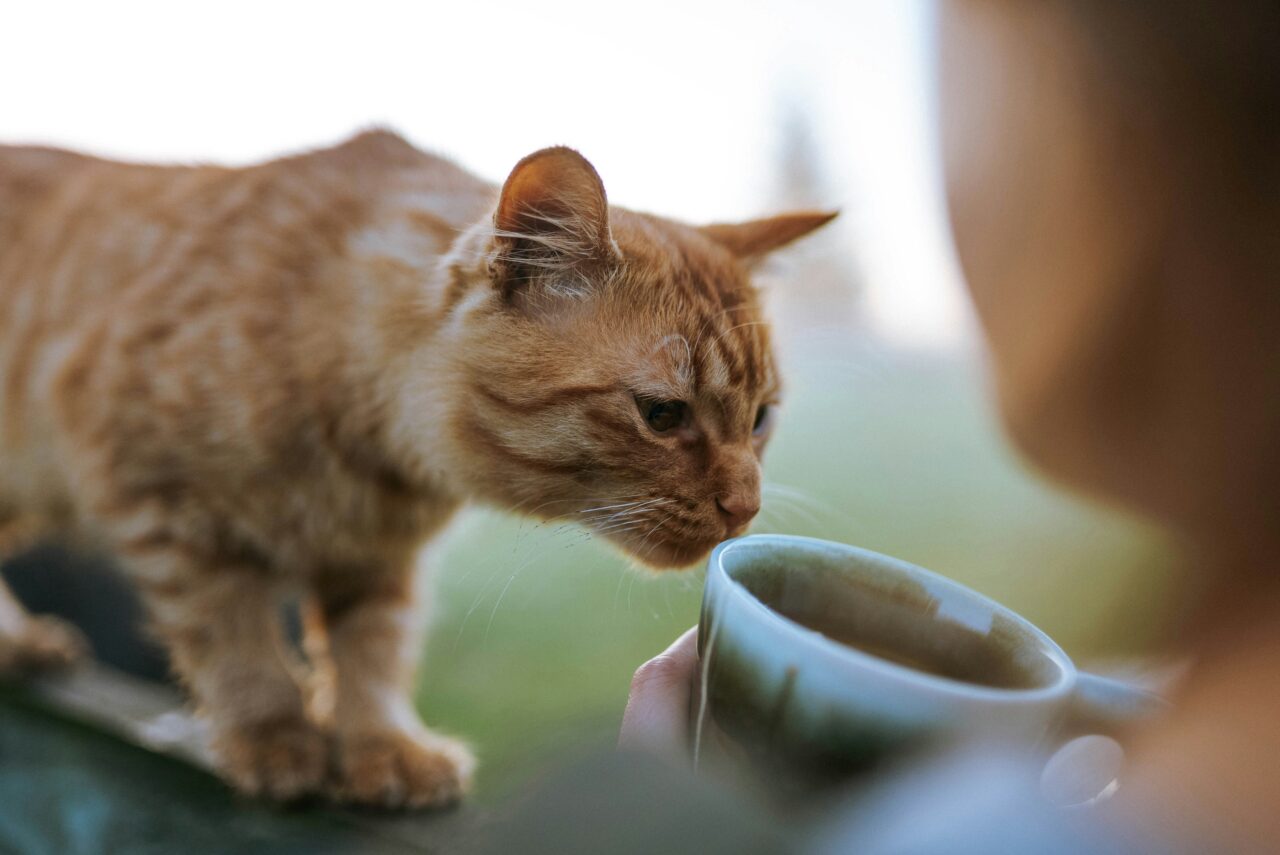
Caffeine is a stimulant found in coffee, tea, energy drinks, and certain medications, and it’s highly toxic to cats. Even small ingestions can lead to symptoms like restlessness, rapid breathing, heart palpitations, and tremors. In severe cases, it can cause seizures or even death.
Cats may be attracted to the milk in coffee or the sugar in caffeinated beverages but must be kept away from these items. Ensure caffeinated products are stored safely, and spills are cleaned immediately. Alertness to these dangers can prevent accidental consumption.
5. Alcohol

Alcohol, found in beverages, cleaning products, and some cooking ingredients, can quickly lead to ethanol poisoning in cats. Even small amounts can cause vomiting, diarrhea, and disorientation. More severe cases can result in respiratory failure or death.
Cats are often attracted to the smell of certain alcoholic drinks, making accidental ingestion a real risk. Always clean spills promptly and store alcoholic beverages and products out of reach. This precaution should extend to food items containing alcohol, ensuring that they are not accessible to your feline companions.
6. Raw Eggs
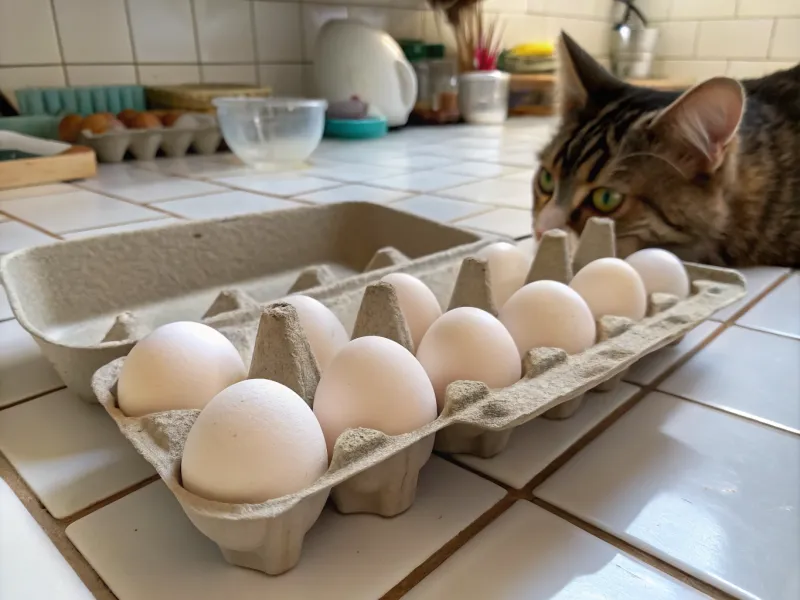
Raw eggs can expose cats to bacteria like Salmonella and E. Coli, leading to gastrointestinal issues. Additionally, raw egg whites contain avidin, which inhibits the absorption of biotin, essential for healthy skin and coat. Symptoms of bacterial infection include vomiting, diarrhea, and lethargy, which can be particularly severe in kittens or older cats.
While some pet owners advocate for raw diets, it’s crucial to weigh the risks. If feeding eggs, ensure they are fully cooked. This simple precaution can significantly reduce health hazards associated with raw consumption.
7. Xylitol
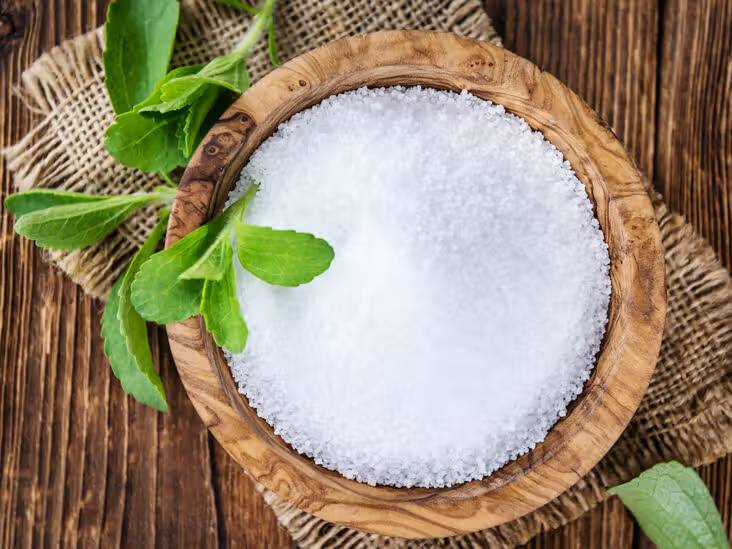
Xylitol, a sugar substitute found in many sugar-free products, can cause a dangerous insulin release in cats. This leads to hypoglycemia, characterized by weakness, vomiting, and seizures. Severe cases may result in liver failure or even death.
It’s primarily found in gum, candies, and some baked goods, making it crucial to keep these items secured. Always read labels thoroughly to prevent accidental exposure. Educating household members about the risks associated with xylitol can help keep your cat safe from this hidden danger lurking in everyday products.
8. Macadamia Nuts
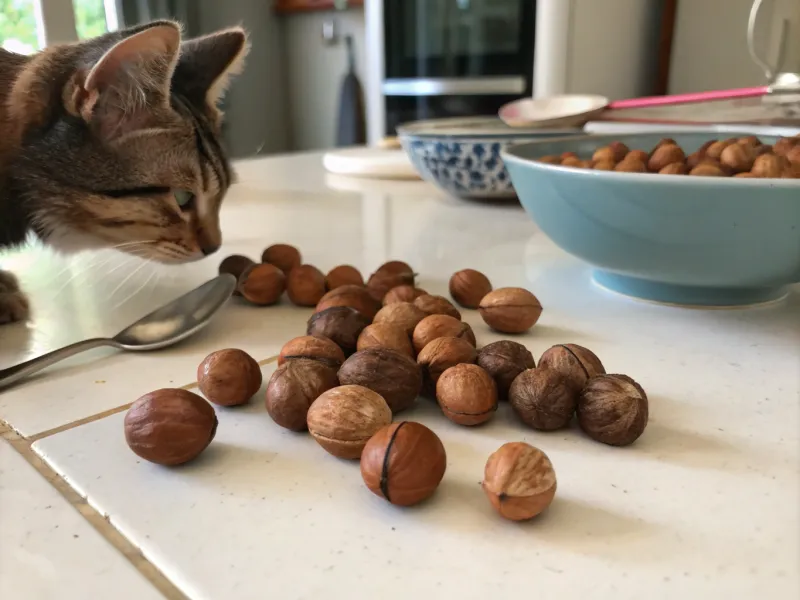
Macadamia nuts are highly toxic to cats, although the exact toxin is unknown. Consumption can cause vomiting, increased body temperature, and lethargy. Some cats may also experience muscle tremors and stiffness.
These symptoms typically appear within 12 hours of ingestion and can last up to 48 hours. Despite being a common ingredient in baked goods and snacks, macadamia nuts should be kept out of your cat’s reach. It’s important to educate everyone in the household, including guests, about the dangers of feeding cats foods containing these nuts.
9. Dairy Products
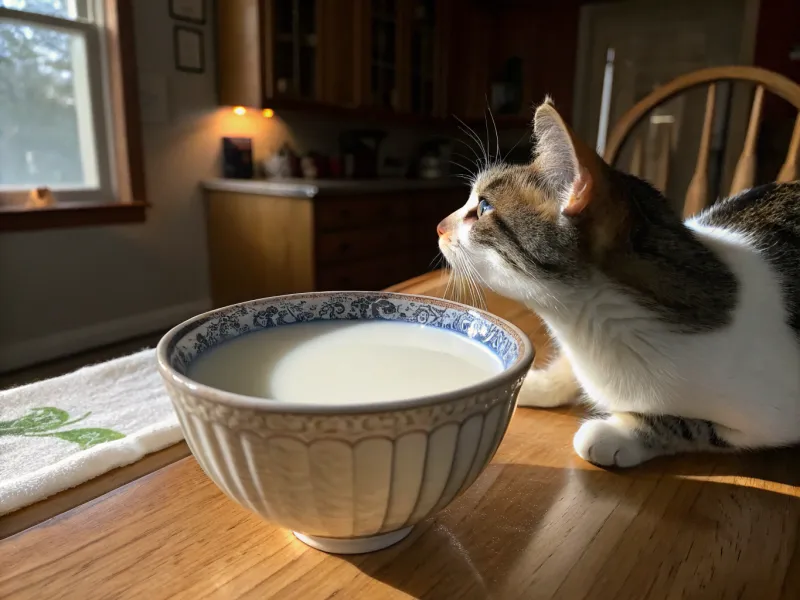
Many cats are lactose intolerant, so consuming dairy can lead to digestive issues like diarrhea and stomach upset. While kittens can digest their mother’s milk, adults often lose this ability. The symptoms of lactose intolerance may include bloating and gas, which can be uncomfortable for your pet.
Alternative milk products, such as those specifically designed for cats, might be better options. If you suspect your cat is suffering from dairy-related issues, consult with a veterinarian. They can provide guidance on suitable dietary changes to keep your cat healthy.
10. Bones and Fat Trimmings
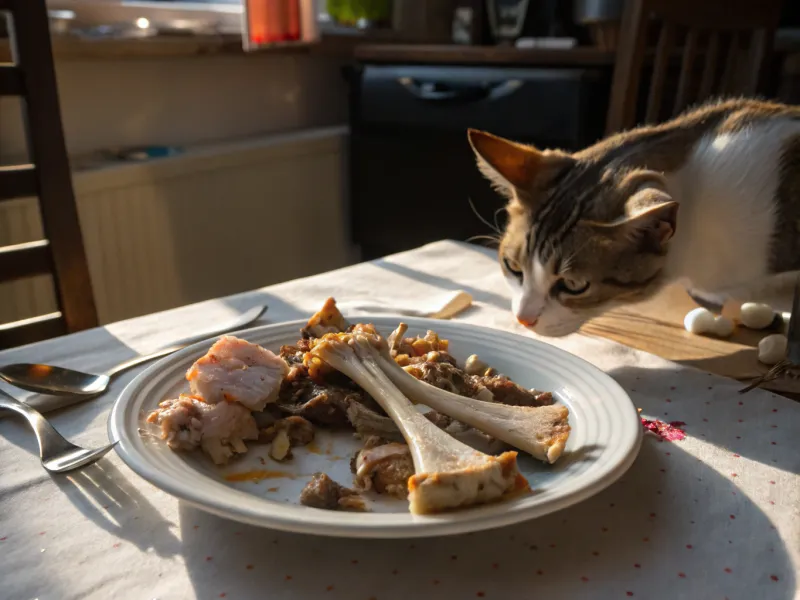
Bones and fat trimmings may seem like a natural treat for cats, but they pose significant health risks. Bones can splinter and cause choking or internal injuries. Fat trimmings can lead to pancreatitis, a painful and potentially life-threatening condition.
Symptoms include vomiting, lethargy, and abdominal pain. It’s essential to dispose of bones and fat scraps securely, ensuring they are out of your cat’s reach. Instead of feeding table scraps, provide your cat with safe and nutritionally balanced treats. Regular vet check-ups can help monitor your cat’s digestive health.
